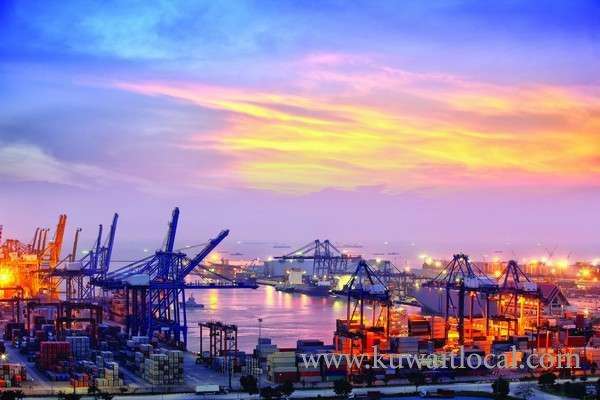Latest News
- Amir Of Kuwait And Jordan King Renew Commitment To Regional Secu...
- 37 Arrested With Narcotics And Firearms
- Outrage Over Candidate's Arrest
- Six Stores Shut Down In Jahra For Selling Fake Goods
- Peddlers Caught With Drug Pills And Crystal Meth
- PAFN Shuts Down Restaurants And Bakeries Over Violations
- MoI Officer And Lawyer Jailed On Fraud Charges For Bad Cheques
- Thousands Of Bangladeshis Gathered To Pray For Rain
- Kuwait University Symposium Addresses Student Counselors' Role I...
- Kuwait Affirms The Importance Of Group Work In Addressing Common...
- Urgent Call For Kuwaitization: Civil Service Commission Aims For...
- Kuwait Halts Work Permits For Egyptian Workers Amidst New Regula...
Economic Growth To Slowdown In Gcc Countries

The International Monetary Fund (IMF), in its most recent assessment of economic growth for the region, said that the Gulf Cooperation Council (GCC) countries, already facing a ‘tightening’ of public spending due to persistent low oil prices, are expected to see growth slow further this year from 3.75 percent to under 2 percent.
In the Middle East and North Africa, oil exports for 2015 compared to 2014 were down by US$319 billion. Based off current projects the IMF expects a further drop in oil revenues for 2016. The Regional Director of Middle-East and Central Asia department at the IMF, Masood Ahmed, said, "We have downgraded our projections for growth for nearly all the exporters in the Middle East and North Africa even after the numbers in January that were significantly downgraded already."
In the medium term, the overall growth rate for oil exporters will increase from two to three percent "mainly due to the increased growth in Iran because of the effect of lifting sanctions," he said. Iran is expected to produce an extra 600,000 of barrels a year due to the lifting of sanctions following the nuclear agreement. Meanwhile, Iraq is also expected to increase its oil production.
"This year despite the efforts to cut back on public spending we are going to see a widening of the deficits on most countries ... their efforts to cut back are being overtaken by the further drop in revenues," said Mr. Ahmed.
"This means that this effort to consolidate their spending and raise non-oil revenues is something that countries in the region will need to continue over many years." The non-oil growth in GCC states is projected at just below 4 percent for both 2015 and 2016, a reduction of 1.75 percent percent compared with 2014.
However, Mr. Ahmed noted, "Fortunately most of these countries have the financial resources that they have built up and the capacity to borrow from the markets, they don't have to make the adjustment brutally but most do it in a gradual way; nevertheless it is an adjustment that has to be made."
Spillovers from the decline in the GCC have also had some negative effects on oil importing countries in the region, in terms of remittances, investment and tourism. Another major factor affecting the Middle-East outlook is conflict in the region including the "horrendous cost in human life and damage to those societies and they have given rise to large number of people ... who are displaced as refugees," added Mr. Ahmed.
Trending News
-
 Kuwait Implements Home Biometrics Services Ahead O...
14 April 2024
Kuwait Implements Home Biometrics Services Ahead O...
14 April 2024 -
 Kuwait Airways Provides Update On Flight Schedule...
14 April 2024
Kuwait Airways Provides Update On Flight Schedule...
14 April 2024 -
 Kuwait Airways Introduces Convenient Home Luggage...
15 April 2024
Kuwait Airways Introduces Convenient Home Luggage...
15 April 2024 -
 Expat Residency Law Amended By Kuwait Ministerial...
20 April 2024
Expat Residency Law Amended By Kuwait Ministerial...
20 April 2024 -
 Gathering For Eid Al-Fitr Prayers: Kuwaiti Citizen...
10 April 2024
Gathering For Eid Al-Fitr Prayers: Kuwaiti Citizen...
10 April 2024 -
 Two Expats Are Arrested For Stealing From Salmiya...
17 April 2024
Two Expats Are Arrested For Stealing From Salmiya...
17 April 2024 -
 An Egyptian Expat Dies At Kuwait's Airport
11 April 2024
An Egyptian Expat Dies At Kuwait's Airport
11 April 2024 -
 Kuwait Airways Resumes Flights To Beirut And Oman...
15 April 2024
Kuwait Airways Resumes Flights To Beirut And Oman...
15 April 2024 -
 Bay Zero Water Park Kuwait: Summer Season Opens Ei...
11 April 2024
Bay Zero Water Park Kuwait: Summer Season Opens Ei...
11 April 2024 -
 Temperature Increases Cause Electricity Load Index...
21 April 2024
Temperature Increases Cause Electricity Load Index...
21 April 2024












Comments Post Comment